Study Abroad Zanzibar: Swahili and Spice
For students, island’s east-west tapestry stirs cultural awakening
Dressed in a caftan and loosely arranged headscarf as she strolls Zanzibar’s Forodhani gardens, Grace Condon is a world away from home. But she is happy and relaxed in this far-flung place, snacking on fresh-grilled corn, horsing around with her little “brother,” and calling “Jambo” (hello) to friends as the sun sinks into the Indian Ocean and fishermen drag their dhows along the beach below. These are the balmy late July days after the rainy season, leading up to the monthlong fast of Ramadan, on Zanzibar, the east African archipelago that has become synonymous with the exotic.
Condon (COM’18) is one of seven students in BU’s 2015 Zanzibar: Swahili Language and Culture in East Africa Study Abroad program, here to live with host families and earn credits in Swahili, African identity, religion, and politics. But at the end of six weeks among the ancient baobabs, sultan’s fortresses, and colorful markets, they will have learned far more. For each student, in his or her own way, the gentle African hospitality they encounter and the intimacy of sharing part of the Islamic holy month make the program a lesson in cross-cultural empathy and respect in a time when both are sorely needed.
Where is Zanzibar? As they prepared for their adventure, the five young women and two young men enrolled in the summer program discovered that they, too, had some educating to do. Many Americans are fuzzy about Zanzibar, 22 miles off the coast of the East African United Republic of Tanzania at the channel’s narrowest point, reached by fast ferry or a 20-minute flight from the teeming Tanzanian capital of Dar es Salaam. With the main island of Zanzibar, also called Unguja, about the size of Maui, the country has been politically autonomous since 1964. (Oman’s Busaid Dynasty ruled there until the 1960s.) Its postcard-perfect beach resorts are one-stop getaways for rich Tanzanians and Western vacationers. But if the island’s weathered jetties could speak, they would hold forth in a deafening babel of tongues—echoes of centuries of traders, colonialists, and refugees, including seafaring Europeans, South Asians, Shirazi Persians, and Arabs, and their legacies of wealth, empire, exile, of thriving commerce in spices and ivory, and a slave trade that lasted a millennium, and although outlawed by the British in the mid-19th century, persisted in some form until the end of World War I. (The remains of its bustling open-air slave market now lie under the island’s Anglican cathedral.) Zanzibar’s population is 90 percent Islamic, its skyline notched with minarets, but it is a multiethnic place where church bells and the tinkling of Hindu temple ghantas overlap with the Muslim call to prayer.
Each day on their way from their host homes to classes, the students walk the cobbled alleys of Stone Town, a UNESCO World Heritage site and Zanzibar’s historic heart. Exotic, yes—this so-called ancient modern capital has hundreds of ornately carved doors studded with brass spikes crafted to repel the elephants that once plied these same paths. When Peter Quella, assistant director of the African Studies Center at the Frederick S. Pardee School of Global Studies, and an adjunct professor, was scoping out sites for a new African Study Abroad program three years ago, it wasn’t just the island’s cultural riches and relative tranquility that captivated him. He also found a host university, the State University of Zanzibar (SUZA), with a highly regarded intensive language program, as well as a reputation for embracing international students and hosting students from many American universities. To Quella, who heads the program and taught the 2015 summer course in politics and history, Zanzibar is a living, evolving museum that “exists in a world of its own,” he says. But with a population just short of a million, the island is balancing its traditional rhythms with the modernization that comes with increased foreign investment and an expanding tourist industry.
“It’s both part of its charm and its mystery how well Zanzibar conceals the encroachment of modernity,” says Quella. “The students have been completely open” to the more timeless aspects of their lodgings. Condon learned to use a squat toilet. Derek Hartnett (CAS’16) grew quickly accustomed to cold showers. In family and social gatherings the women students wore headscarves, and for the two weeks the BU students were there overlapping the month of Ramadan, although there was feasting after sundown, they adjusted to the dawn to dusk absence of meals and water (food was available during the day if they wanted it). And Condon and the other women say they came to understand that the occasional separation of genders diminished neither men nor women. The students also relaxed into the unhurried pace of island life, summed up in the local mantra pole, pole (slowly, slowly).
“It’s just as much a learning experience for our hosts as it is for us,” Hartnett says of his family, Hajji and Nahda Islam—both former professional basketball players—and their two sons, ages two and a half and four and a half, who tended to use Hartnett as a visiting jungle gym. “They appreciate that we respect their values and customs while we’re in their homes,” says cultural anthropology and African studies major Kasey Shultz (CAS’17), whose host parents took her on day trips to beach villages to visit relatives. The students almost all returned home daily for dinners of fresh curry and seemingly endless offerings of passion fruit, papaya, and the ubiquitous avocado, which is made into a creamy juice.
Birthplace of Swahili
For a small place, Zanzibar not only packs a surprisingly global cultural punch, it is also considered the birthplace of Swahili, often called Kiswahili, the official language of Tanzania and the most widely spoken African language, followed by the Nigerian tongue, Hausa. Reflecting the influence of ancient Arab traders, the name Swahili itself comes from the Arabic word sawāḥil, which means “coastal dwellers.” All Swahili Study Abroad courses are taught at the Stone Town–based School of Kiswahili and Foreign Languages at SUZA, with separate classes for beginning, intermediate, and advanced speakers arranged in the shaded stone colonnade of a vast Moorish courtyard. As the only beginner and a last-minute addition to the group, Hartnett had an instructor to himself.
“They are very hard workers, but we also have fun,” says Kijakazi Omar Makame, head of the SUZA Swahili department. The program also includes a Student Language Partner Program that matches foreign students with Swahili-speaking students—rafikis—for honing their conversational skills. These blossomed into friendships. For at least six hours a week, the rafikis help students with homework, or take them to the market to chat with merchants. “They’re also really good people to ask stuff like, where do I get a light bulb,” says Quella. Students spend the rest of their spare time on group field trips and outings with their host families or meeting up with fellow students to sip spiced coffee and people-watch at the Stone Town Café or enjoy the sweeping views and breezes from rooftop cafes.
“The students see things they’ve never seen before, and they learn how different civilizations emerge,” says Idris Ahmada Rai, vice chancellor of SUZA, which has three campuses. “There was the daughter of a millionaire; we took her to the Masai. She learned much more than Swahili.” Rai says SUZA also offers a course for families interested in hosting. “They get certification and there’s a database so students can rate them,” he says. “This has been going on for over 30 years, so we have very experienced families, including many retired teachers.”
The students’ weekly field trips include several days in the wildlife-rich Arusha in northern Tanzania. On the island, they visited a spice plantation—Zanzibar exports vanilla, cinnamon, and nutmeg in addition to cloves—and the bush hut of a mgana wa kienyegi, or healer, whose blend of Q’uranic knowledge, herbal remedies, and symbolic magic are capable, he told the students, of “fixing all the problems you have except for HIV/AIDS.” As the students sit in a semicircle on the floor of the squat concrete infirmary, the healer passes around bunches of lemon grass (to heal the insanity, or zungu zungu), clove leaves, mnusi, njomgoma root, and other remedies. There are elaborate brews for infertility and impotence, and a ritual to win lawsuits, involving scripture written on an egg. “What is the cure for sadness?” assistant program director Breeanna Elliott asks, translating for a student. Those who are grieving should “write a passage from Q’uran in red food coloring on a piece of paper. Dip the paper into a glass of water and when the red bleeds out of the paper, drink the water. Then bathe yourself.”
Beyond academics: life lessons
Madelyn Powell (GRS’16) found the soul of Zanzibar culture in its food: “An overpowering smell of fish bombarded my nostrils as I walked through the narrow and crowded streets of Darajani Market, the main bazaar in Stone Town, for the first time,” says Powell, who is working on a master’s in international relations. Many of the fish were unrecognizable to her as was the fruit she found at the produce stalls. “I would soon learn about jackfruit, starfruit, passion fruit, and custard apple, just to name a few,” she says. She was surprised to see that fresh milk was sold in old plastic water bottles. “The vast array of food I saw at Darajani foreshadowed the massive role of food in society that I would come to observe during my time in Zanzibar.” Powell’s fascination with food led to memorable adventures, like the time she prepared chicken soup for her host family and was told by her rafiki that “on the island there are two types of chickens: white people chickens, and Swahili people chickens.” Powell procured a “Swahili chicken”—wild rather than domesticated—but learned only after watching her hosts chew on its rubbery blue-ish meat that wild chickens are prepared differently and need to cook for many hours.
It was the weeks of Ramadan that most broadened Condon’s horizons, and sent her home with a more worldly and compassionate outlook. She was initially nervous about traveling to a predominantly Muslim island, she says, “because I didn’t want people to hate me because I was Christian.” It was a Saudi Arabian guest visiting for Ramadan at Condon’s host home in the Shangani quarter of Stone Town who engaged Condon in frank discussions of faith. “He said over and over, ‘I want you to understand that Muslim faith is peaceful, and if you read the Q’uran, you will understand this,’” says Condon. “I thought it was interesting how much he wanted to make sure he was breaking down what he thought I perceived Islam to be and building a new reputation for the religion. I wondered what he had heard about America, what types of Americans he had met before, and how much the media played into his perception of us. Based on the way he talked to me, I felt that he clearly had the idea that I was antagonistic toward Islam, and to be honest, I couldn’t blame him. One of my host sisters had asked me whether or not it was dangerous for her to travel in America. She was afraid that she would be shot if she came because she is Muslim.”
Reflecting on his Zanzibar experience back in Boston, Hartnett says he grew aware of the blood memory of slavery among its people, and how that legacy informs, even on the subtlest level, a reverence for freedom. The program opened the international relations major’s mind not just to a way of living, but to a way of being. “Whether you’ve just come in for the weekend on the ferry from Dar es Salaam or you are studying Swahili for two months at the State University of Zanzibar, the term ‘feel free’ will be unavoidable,” he says. “The phrase is likely to be heard when entering a shop or café, when being introduced to someone, or even just in passing on the street.” After weeks of living with the locals and studying Swahili and the history and culture of Zanzibar, the seemingly lighthearted remark began to take on a deeper meaning for him. “Amid a history marred by slavery and the slave trade, despite the misunderstood conservative nature of Islamic life, and in the midst of a desire for independence,” he says, “the phrase ‘feel free’ stood as a proud beacon to all who wander endlessly through the maze-like streets of Stone Town.” To Hartnett, on a universally human level, it came to mean: “Appreciate all whom you encounter, allow yourself to feel safe and relaxed, and just be”—a lesson worth holding onto.
This Series
Also in
BU Abroad
-
March 20, 2017
Cuban Culture Shapes a Spring Break Trip
-
July 14, 2016
Sargent Students Witness Public Health in Thailand
-
March 8, 2012
BU Abroad: Arts in Ireland








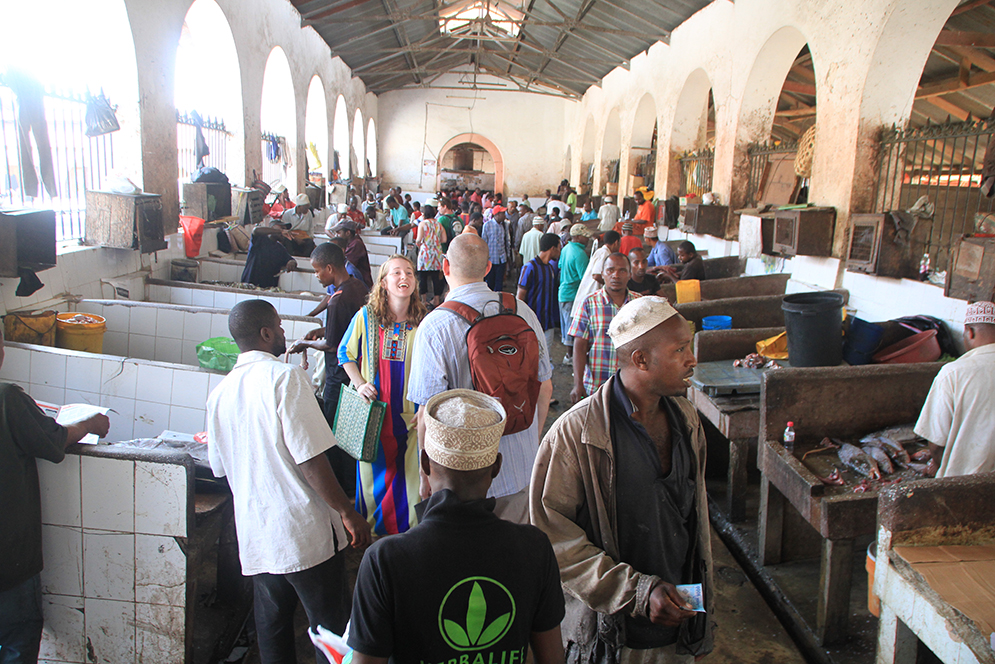
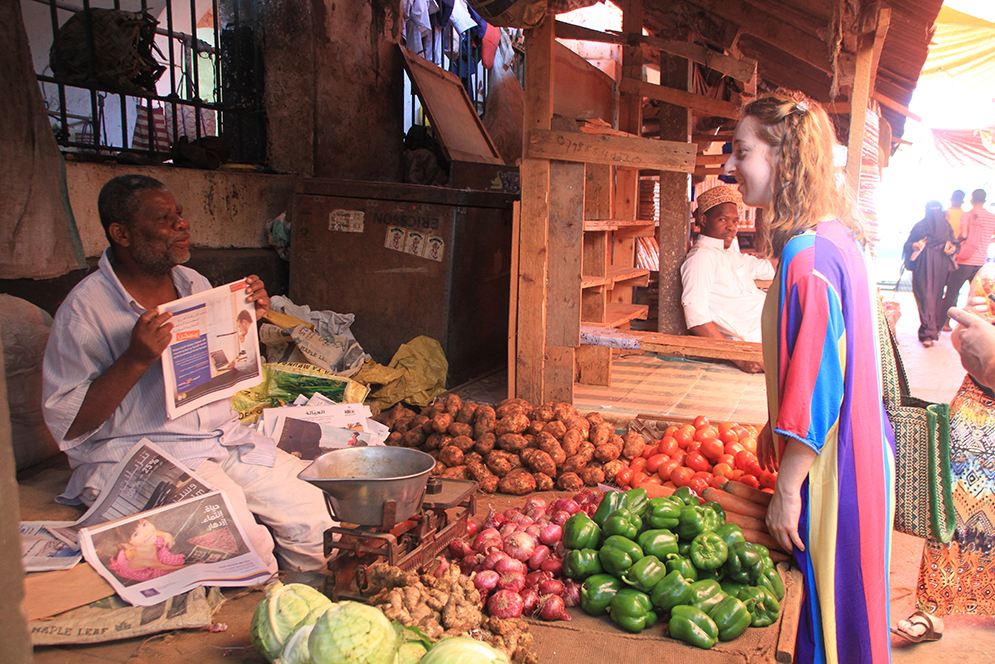
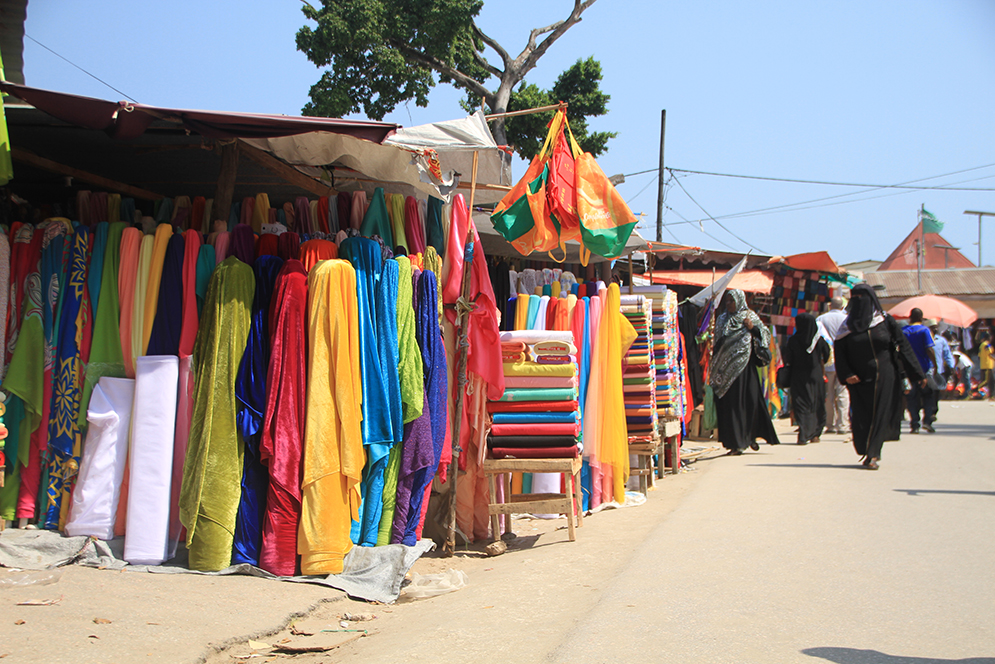

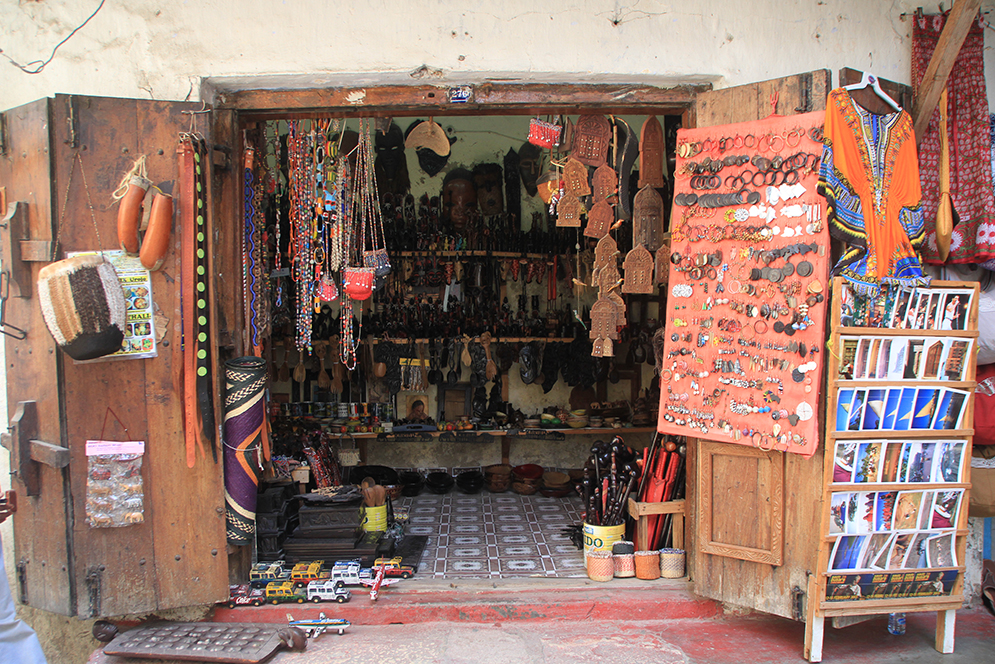



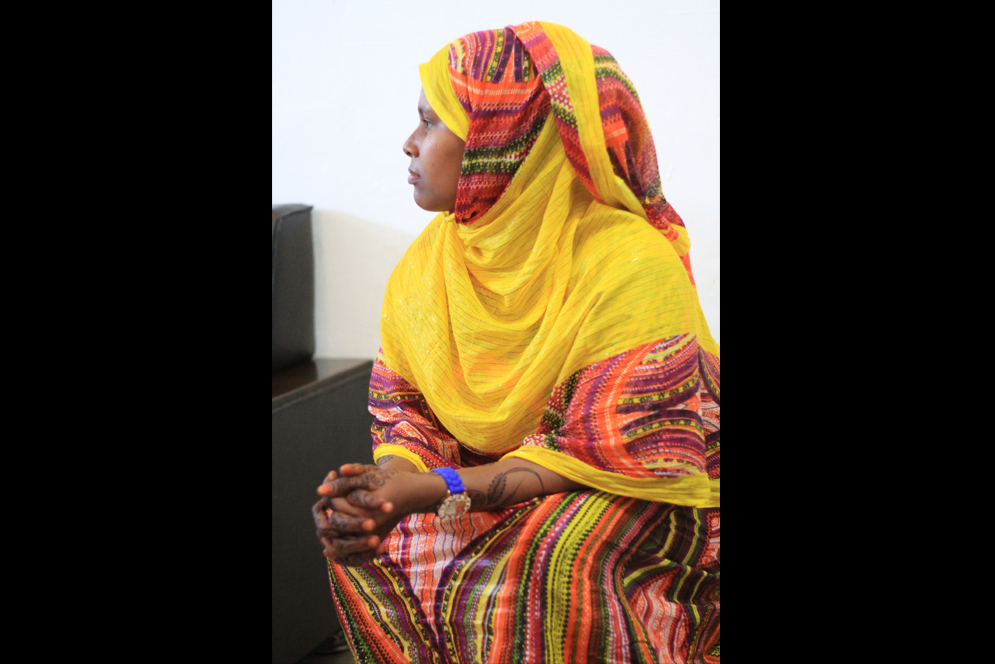





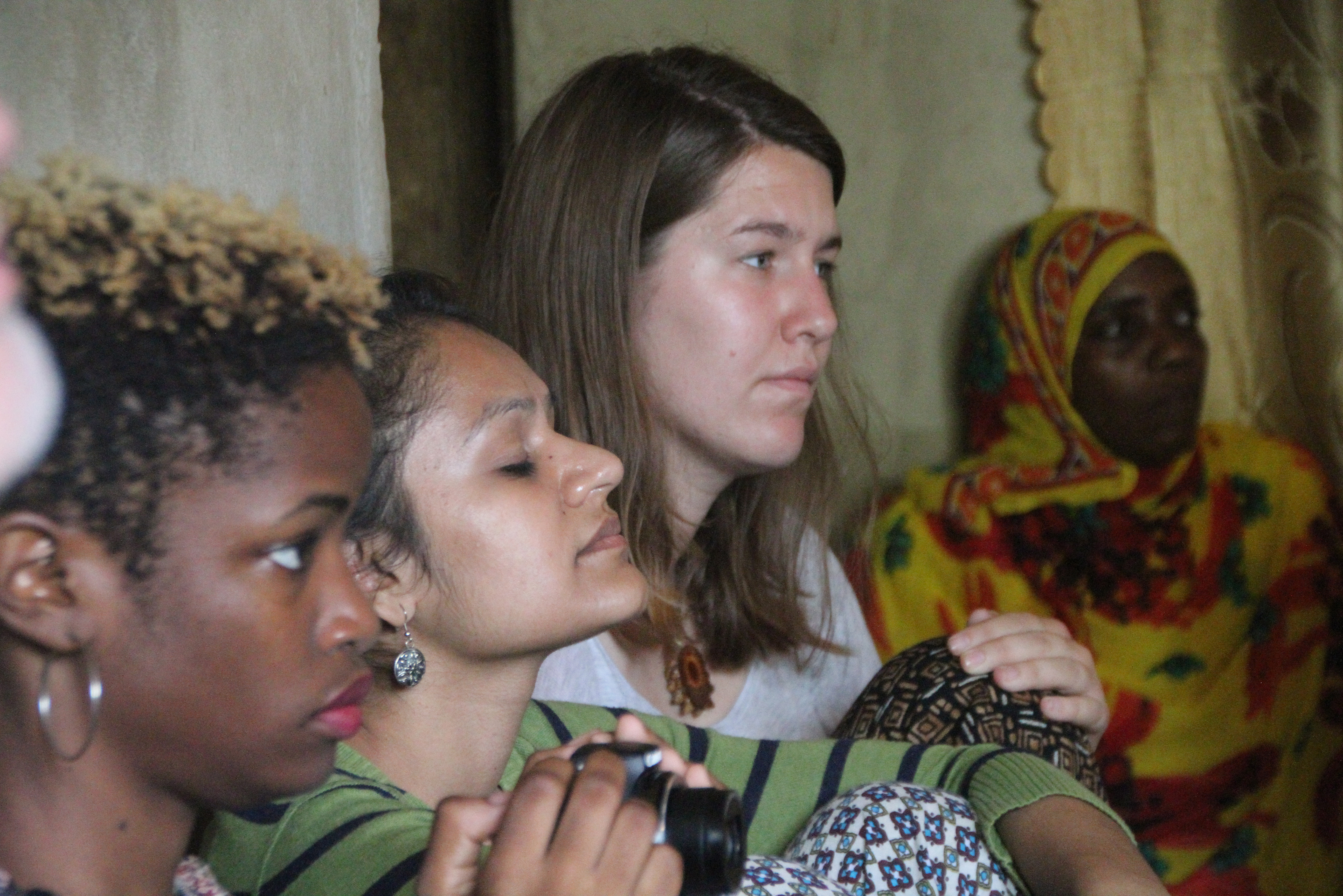


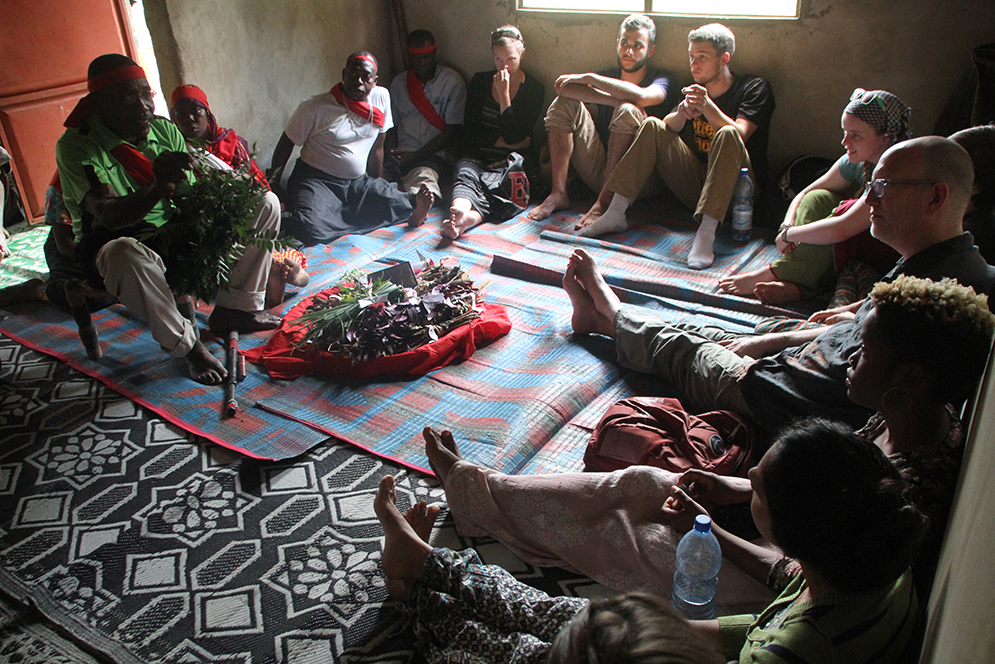



Comments & Discussion
Boston University moderates comments to facilitate an informed, substantive, civil conversation. Abusive, profane, self-promotional, misleading, incoherent or off-topic comments will be rejected. Moderators are staffed during regular business hours (EST) and can only accept comments written in English. Statistics or facts must include a citation or a link to the citation.